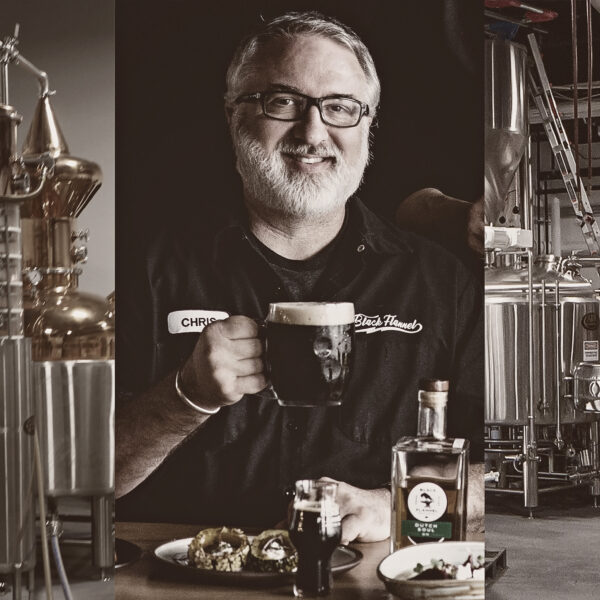Cheers or Jeers? Rethinking Alcohol Taxes
Sign up for our event newsletter!
Featuring

[Moderator] Jarrett Dieterle, Resident Senior Fellow, R Street Institute

Adam Hoffer, Director of Excise Tax Policy, Tax Foundation

Chris Kesler, Founder, Black Flannel Brewing and Distilling Company

Rep. Curt VanderWall, Michigan House of Representatives
Overview
America’s tax code is known for its infinite complexities and unexplainable nuances, but perhaps no area of the tax code is more convoluted than alcohol. Should alcoholic beverages be taxed based on what ingredients are added to them? Their alcohol-by-volume level? The amount of bubbles they contain? All of these factors and more can influence the tax rate of your favorite drink—and even alter the type of drinks that are being produced in America today.
Chief Justice John Marshall—himself a great lover of libations—famously warned that “the power to tax involves the power to destroy,” but what if there’s a better way to tax our alcoholic beverages? Is there a clear, straightforward, fair way to tax alcohol across all beverage categories and types, or are we doomed to limp along under our current labyrinthine system? Join us as a panel of experts answer these questions and more.
Further Related Reading and Research
Jarrett Dieterle, Resident Senior Fellow, R Street Institute
“Big Beer vs. Canned Cocktails in the Grocery Aisle,” Reason Magazine(April 2024)
“The disparities in treatment between spirit-based and malt-based RTDs are glaring, and the rationale for maintaining these different rules is illogical. Many spirit-based RTDs are only 5 to 6 percent alcohol by volume (ABV), just the same as malt-based versions. For instance, a can of malt-based White Claw is 5 percent ABV, while High Noon’s vodka-and-soda canned cocktail sits at 4.5 percent ABV.
Despite this, only 29 states permit the sale of spirit-based RTDs in grocery and convenience stores, while nearly every state (47 out of 50) allows malt-based RTDs in these same outlets. Moreover, 45 states impose higher taxes on spirit-based RTDs than on malt-based offerings…”
“The Federal Government is Literally Taxing Air,” Reason Magazine (May 2024).
“America’s tax code is notoriously convoluted, but the complexity really sparkles when it comes to the federal government’s approach to alcohol taxation. Wine, beer, and liquor are all subject to varying tax rates based on intricate calculations, but the so-called ‘bubble tax’ for hard cider is the star of this regulatory circus.”
Adam Hoffer, Director of Excise Tax Policy, The Tax Foundation
“Modernization of the Alcohol Tax,” The Tax Foundation (December 2023)
“This paper delves into the intricate landscape of alcohol taxes, summarizing the current alcohol tax landscape and highlighting innovations that have blurred the categorical tax lines. We then explore a framework for the continued modernization of alcohol taxation. This framework provides options for broad criteria to simplify, and create more certainty in, the alcohol tax system.
An ideal alcohol tax designed from scratch would eliminate tax categories and production subsidies. Any product containing alcohol would be taxed based on its alcohol content, regardless of the process of extracting the alcohol (e.g., distilling, mashing, or steeping) or the initial starting ingredient (grapes, grain, potatoes, sugar cane, apple, pear, honey, etc.). The alcohol by volume (ABV) tax ensures neutrality by taxing all drinks containing the same amount of alcohol at the same tax rate.”
Chris Kessler, Founder – Black Flannel Brewing & Distilling Co.
Legislative Testimony on Alcohol Tax Parity in Vermont (February 2024):
“Craft beer enjoys a high level of support from Vermonters making the road to economic sustainability and job security much easier than that enjoyed by the Vermont Distilling community. Distillers need as many viable revenue channels as possible to attain economic sustainability, and with a tax rate 2-4 times higher for similar ABV products, it makes it that much harder for distillers to create and maintain jobs for Vermonters.”
Rep. Curt VanderWall, Michigan House of Representatives
Sponsor of S.B. 141 (2021), creating tax parity between spirit-based and malt-based RTDs in Michigan:
“Ready-to-drink cocktails have experienced massive growth in the marketplace over the last few years and this legislation is a critical piece in ensuring that these products are able to compete on a level playing field. These bills help our local distillers by removing tax barriers and giving them the ability to get their products in front of consumers easily and quickly.”